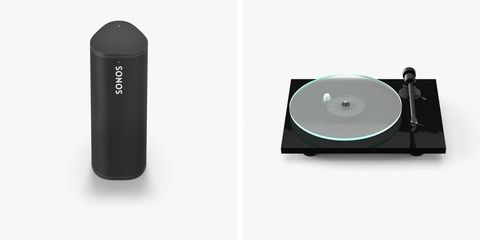This is the first time in the so-called "smart speaker age" that Amazon, Google and Apple all have had options that cost around $100. As usual, Amazon and Google have released improved versions of their $100 smart speakers. And Apple has finally gotten into the action, releasing a smaller and more affordable version of its HomePod ($299), called the HomePod mini.
Both Amazon and Google have improved the audio performance of their flagship smart speakers, the Echo (4th-gen) and Nest Audio, respectively, but kept the $100 price. And while the Apple HomePod has been crowned as the best-sounding smart speaker for some time, the HomePod mini is much smaller and naturally doesn't sound as good. So the playing field is more level.
What You Need to Know
It's all about your smart home ecosystem: When it comes to choosing a smart speaker, there are bigger concerns than sound quality. Namely, whether it plays nice with the other smart devices in your house. If you want to control them with your voice, you need to make sure it's compatible with your smart speaker. An Echo can control any Alexa-enabled device. Nest Audio can control any smart speaker that's compatible with Google Home. And Apple's HomePod mini can control smart devices that work with HomeKit.
What music service do you subscribe to? Amazon's Echo and Google's Nest Audio play well with most services, including Spotify, Apple Music, Pandora and more. This means you can use your voice to request songs or playlists. The outlier is HomePod mini, however, as voice commands only work for paying subscribers of Apple Music (and Deezer, more recently). If you don't subscribe to Apple Music, you really shouldn't consider getting a HomePod mini.
360-degree sound or front firing: Back in the day of the first Amazon Echo and Google Home (now Nest Audio), it was all about speakers that could play 360-degree sound — meaning it played in all directions. Over the years, however, most smart speaker manufacturers have realized that most people place speakers near a wall and not in the center of a room. So the latest Echo and Nest Audio speakers are now front-firing speakers. The HomePod mini is still a 360-degree speaker, but uses room-tuning technology to self-calibrate its sound based on its location.
Stereo pair two together for even better sound: Lastly, if you're looking for the best possible sound any of these $100 smart speakers — buy two and configure them in a stereo pair. It's easy, simple and each of these smart speakers is capable of doing it.
How We Tested
We pitted the Echo (4th-gen), Nest Audio and the HomePod mini all against each other, and tested them using Spotify (and Apple Music on the HomePod mini). We listened to each head-on so that they were on a level playing field, though Apple's HomePod mini has an objective edge when you're listening to it at an angle owing to its 360-degree audio design. Here's how they performed:
Amazon Echo (4th-Gen)
The fourth-generation Echo is my least favorite-looking smart speaker of the bunch, mainly due its cheap-looking volume control buttons on the top, but it sounds very good and gets surprisingly loud. Amazon decked it out with the same 3-inch woofer as the 3rd-generation Echo, but added a second tweeter to help it with mid-range and high frequency sounds. While this Echo gets just about as loud as the Nest Audio, it's able to create a more spatial sound — or stereo effect — that sounds lively.
Nest Audio
The Nest Audio's sound is very comparable to the new Echo. The big difference is that the Nest Audio's sound feels more directional — like it's coming right at you — and it's not quite able to capture that same stereo effect. That, however, doesn't mean that it sounds worse. The vocals on a lot of songs (like London Grammar's "Rooting For You" or Pearl Jam's "The End") strike me as grittier and slightly more real-to-life.
HomePod mini
The HomePod mini is definitely the outlier of the group because it sounds so different. It doesn't get nearly as loud as the Nest Audio or Echo — its max volume is probably 75% of those other smart speakers — so it may struggle to fill particularly large rooms. On the flip side, the HomePod mini definitely sounds better than the Echo and Nest Audio when playing slower tracks with strong vocals and instrumentals, which is a lot of what I listen to. There's a clarity and realism to its sound that's really quite striking.
And the winner is...
None of these options is a slouch, but if you were to twist my arm I'd tell you that the HomePod mini is the best. It's not the beefiest speaker of the bunch, but "louder" isn't "better." While it can't get as loud as the Echo or Nest Audio or deliver the same pump-up, bass-heavy sound that I crave when working out, it's clearly the best-sounding smart speaker for music with strong vocals and instrumentals and that's exactly what I like to listen to most of the time.


















